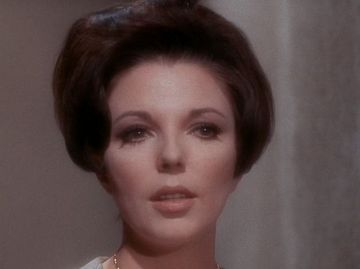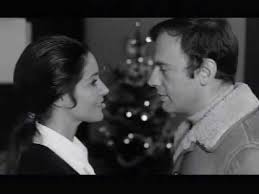Woke up, fell out of bed, dragged a comb across my head… and decided this twenty-eighth post of my 30 day challenge would be about ageing.
And then, because I’m in the magic zone where synchronicity just happens, I read an interview with novelist Marilynne Robinson while drinking my morning tea and, abracadabra, these words appeared on the end of my wand:
ROBINSON
I have a sense of urgency about what I want to get done and I discipline myself by keeping to myself. It’s a nice opportunity to be able to know these people, but I have to do other things, which take hours, days, weeks.
INTERVIEWER
Have you always felt that urgency or is this something new?
ROBINSON
It’s a little new. Years ago, I was younger than I am now.
You can read the full article here (which appeared, in 2008, in the Paris Review: and why, when I’m reading the Paris Review, do I always glance down at my clothes, and my choice of beverage, and the shabby chair I’m sitting on, with the airy disdain of a Parisian waiter and remember all over again that I’ll never be truly cool?).
But I digress…
Years ago, I was younger too.
I had the heartwarming experience yesterday of bumping into an old work mate, and being told I looked younger than ever – ‘like a schoolgirl’! (It was a dark street.) Perhaps, with some vaseline on the camera lens, I could just about pass as a schoolgirl of the Grease variety, where Rydell High was patently populated by students pushing thirty, but, no, I am not a schoolgirl and do not look like one. Even though I do wear bunches sometimes. And my management of my finances is positively schoolgirl-ian in its consistent focus on instant gratification.

Perhaps do something clever with soft-focus lenses, a la Joan Collins in a 1967 episode of Star Trek. (William Shatner’s focus was warts-n-all sharp as a tack.
Like Kit Williams in Masquerade, I’ve laid a trail of clues in recent posts as to my exact age, so, ahem, we won’t mention it here. But I’m quite a lot older than I was when I first had a sniff at a publishing deal (I was 20, Fact Fans). And the 17-year-old Lynsey who tore open her acceptance letter from The Rialto and positively floated to school because she was going to be A Poet… would have to wait an awful lot longer than anticipated for her next piece of work to be published. (Twelve years, Fact Fans. Although two came in the same week, which reminds me of something about buses… and men…)
And now here I am, X number of years later, writing my first novel at the age of… let’s just say I’m une femme d’un certain age and leave it at that.
For a person who’s always written, since the age of 6, it’s a fairly clear indictment of the way I live my life that I’ve made so little finished work in that time. When I say ‘always’ written, I mean: ‘always thought of myself as a writer’ – when others, assessing the ‘work’ they’d produced so far, might have slipped by the wayside and started to call themselves other things: butchers, bakers, candlestick makers. Hah, kidding! I meant, of course, productivity managers, process administrators, data coordinators.
(In the process of writing this post I’ve just discovered a job I’d never heard of before, Penguinologist, and now I’m not entirely sure I want to be a writer anymore. Is it too late to swap?)
Is it good or bad to be an older first-time novelist? (I’m going to proceed as if it’s a foregone conclusion that I’ll get my book published, if that’s all right with you; because proceeding on the basis that I’ll have to resign it to the digital graveyard is a bit too annoying to think about at this late stage in the writing.)
Let’s look at the pros:
- I have never before known as much as I know at this moment. (Not even when I was sixteen, when I knew everything.)
- I do not believe that alliteration alone is enough to carry a sentence.
- I have evolved to the stage where I need/want/have very little in the way of social life.
- My daughter’s on the waiting list for surgical attachment to her iPhone, and no longer requires my presence now, now, now at all times.
- I’ve been down this jolly old road before, and succeeded a bit, and failed a bit, and I know life carries on no matter what. (Writing carries on, too, no matter what.)
And now the cons:
- I won’t look like Zadie Smith in my author photos. (Did I before? Er… well… no. But you know what I’m saying here.)
- Assuming the publishers wanted one at all, I would probably be encouraged to have a very small, stamp-sized author photo as opposed to a full cover close-up.
- There can’t ever be a publishing frenzy about the Hot Young Author called Lynsey White.
- My chances of making the Granta Best British Novelists list are dead in a ditch.
- If there’s ever a launch party for my book, I won’t especially want to go. I’ll want to be home drinking cocoa.
Try as I might, I cannot find a single ‘con’ to do with the actual writing. (Oh, hang on! Here’s a tiny caveat: sometimes when I have a great insight, I go to my laptop to write it all down and… ah, now, what did I come in here for again?)
All the cons have to do with publicity, and marketing, and USPs, and sales graphs, and the fact that a publisher is buying you as well as your book. Graham Greene could refuse to be filmed during an interview, but very few have that luxury now. Not that I’ve got anything against interviews, per se: it’s quite clear to you all, by now, that I really like to talk about myself. (Shutting me up would probably be the issue.) But, no, I’m no spring chicken, no whippersnapper, no Mozart-ian genius sprung from the ether.
But writing is an art that doesn’t lend itself to Mozart-ian genius. Having a ‘way with words’ is all very well – in fact it’s wonderful – and you will need a way with words if you’re hoping to write literature (and a ‘way with words’ is fairly impossible to learn, I think: in that respect, yes, there can be a Mozart-y element to it all). But pick up ‘a way with words’ and rattle it and – yes – it’s empty. Until you have something to say, it will always be empty.
I’ve read books recently (Jennifer Egan’s first) and even a Booker Prize nominee (won’t say which one) that left me thinking: clever, but empty. Step away from the Mozart Model of creativity, and turn instead to Beethoven, who said that mistakes were forgivable; what wasn’t forgivable, was playing without passion. Music schools today are crammed to the rafters with kids who can knock off a Flight of the Bumblebee with the effortlessness I reserve for Twinkle Twinkle Little Star…
…but that doesn’t mean they’re making music. (They might be; they might not.) Flying fingers are a conduit to making music, not an end in themselves, no matter how fantastically impressive it all looks – and is (don’t misunderstand me: if I could play like that I’d be doing it right now instead of writing this post). But without emotion, it’s only sport; not art.
My fingers could fly twenty years ago, but it would have been mostly sport I was offering. And so, at the ripe old age I am, I feel properly (honestly!) glad that I didn’t get published twenty years ago. I didn’t know what I was doing.
I still don’t know what I’m doing half the time. But at least now I know I don’t know what I’m doing…
This post is dedicated to PD James, who died yesterday. She never knew it (and doubtless would have been unexcited had she known) but she was the subject of my GSCE Extended Essay in 1989. For which I got an A. So, thank you, PD James, for my A grade, and for proving that women writers can be wanted, welcomed, accepted, even though they don’t begin until they’re pushing forty.




